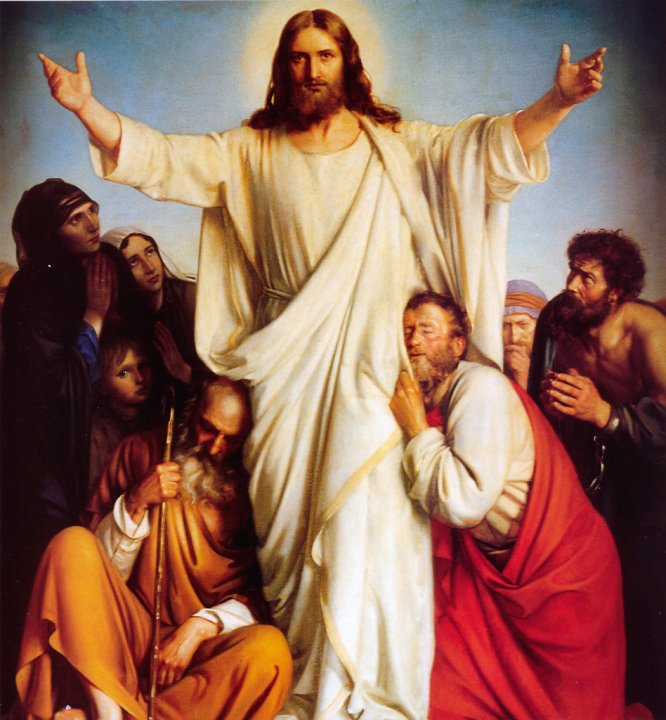Third Sunday of Advent: Year- A
First
Reading: Isaiah 35:1-6.10: God himself is coming to
save you.
Second
Reading: James 5:7-10: Do not lose heart, because the
Lord’s coming will be soon.
The
Gospel: Matthew 11:2-11: Are you the one who is to
come, or have we got to wait for someone else?
The Assurance:
Given to a Questioning Disciple, John the Baptist, Mt 11:1-6
In
John the Baptist’s mind, the Messiah was coming to baptize people with the
Spirit of God and with fire (Mt 3:11;Lk 7:21-23). But Jesus was baptizing with
the Spirit of God and he was doing nothing about baptizing with fire, the
messianic fire of judgement. John must have wondered why Jesus was delaying in
carrying out what he himself had announced about him under the influence of the
Spirit.: to cut the trees that yielded no fruit, to burn away the useless
chaff, punishing Herod and people like him (Mt 3:10,12). To John’s mind, Christ
was fulfilling only half of the prophecies concerning the Messiah (Mt 1:1, 18;
3:11;11:2-3, 5-6;12:16; 22:42; Lk 7:21-23). John was confused in prison.
Perhaps,
John started doubting if he had been mistaken; perhaps this man, Jesus, was not
the Messiah after all-and all his life and suffering had been in vain. He sent
two disciples to ask, and Jesus used the opportunity to vindicate His
Messiahship.
1.
Jesus ended the commissioning of His disciples (v.1)
a.
He sent them out
b.
He began to minister again-alone
2.
John’s perplexity: Pictured a stern Messiah (v.2-3)
a.
Jesus’ works were works of love
b.
John questioned: Expected a Messiah of judgement, not love
3.
Jesus’ assurance: He was beyond question the Messiah (v.4-6)
a.
He spoke as Messiah
b.
He demonstrated the power and works of the Messiah
c.
He fulfilled prophecies of the Messiah
d.
He preached the gospel of the Messiah
e.
He promised both the blessing and judgement of the Messiah
Thought: John
did not fully understand Jesus, and to be honest, we all lack understanding;
yet what is needed is for us to do what John did.
·
He trusted Jesus Christ
anyway.
·
He committed his life to
proclaiming that Jesus was the Messiah and continued to proclaim the message
even though he did not fully understand.
·
He sought answers to what
he did not understand.
·
He did not let his
questions destroy his faith.
·
We should not fear nor be
ashamed because we may not understand or have questions about Jesus. In fact,
it is good to make absolutely sure in all matters concerning our salvation. We
should seek and ask unashamedly (Jas 1:5).
·
John was not weary in
looking for the Messiah. He said he would keep on looking if Jesus were not the
Messiah. We must not become weary and doubting because He has not yet returned
(2Pt 3:3-4,8-18).
·
John’s questioning began
when he was in prison facing great trouble and trail.
·
John had questions to
arise in his mind. Even the strongest are not always strong no matter who they
are (Mt 26:36-46,69-75; Gal 2:11f). severe trails are often a great strain upon
our faith. In such times, we need His strength and assurance (1Pt
4:12-13;5:7,10; 2Cor 1:3-4;2Tim 1:7; Heb 12:3).
·
John believed the
Scripture and looked for the Messiah’s first coming. We are to believe the
Scriptures: He has come and He is coming again (Jn 14:2-3, 1 Thes 4:13f; Titus
2:12-13).
·
John was not a wavering
reed but a man firm in his conviction as a prophet, the Messiah’s forerunner,
the herald of the true king, the greatest of the natural men, the last of an
age, the age predicting the Messiah and he was a promised Elijah, the one to
precede the Messiah.
Jesus
spoke as one having authority: He spoke, taught, and preached as the Messiah
(Mt 7:28-29; Jn 14:10). Jesus demonstrated the power and works of the Messiah.
Jesus was saying that His works and concern (love) were the works and concern
predicted for the Messiah. Jesus did not just professed to be the Messiah, He
proved it as God’s Son, the Messiah (Jn 14:10-11). Jesus encouraged John not to
be offended by Him.

No comments:
Post a Comment